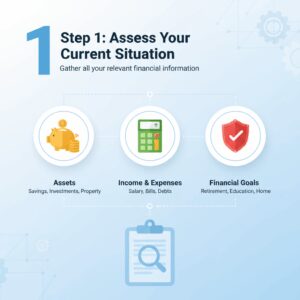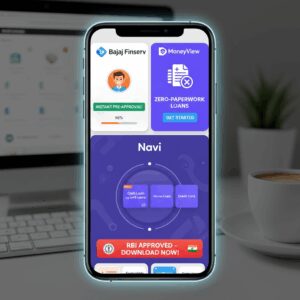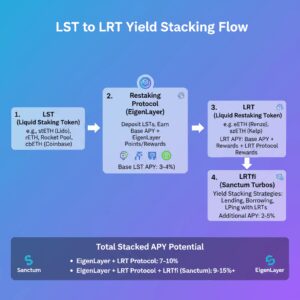Navigating the Maze of Personal Loans: When to Borrow and How to Repay Efficiently

Personal loans can be a double-edged sword. They offer financial relief when you need it most but can become a burden if not managed properly. Understanding when to take a personal loan and how to repay it efficiently is crucial. Let’s explore the intricacies of personal loans and offer tips to navigate this financial tool smartly.
Understanding Personal Loans
A personal loan is an unsecured loan provided by banks, credit unions, and online lenders that you can use for any purpose, from consolidating debt to funding an emergency expense or even a wedding. Unlike secured loans, they do not require collateral but generally have higher interest rates due to the increased risk for the lender.
When to Consider a Personal Loan
1. Consolidating Debt: If you have multiple debts with high interest rates, consolidating them into one personal loan with a lower rate can simplify your payments and save you money on interest.
2. One-Time Expenses: For significant expenses that are essential—such as urgent home repairs or necessary medical procedures—a personal loan can be a sensible option if you don’t have savings to cover the cost.
3. Improving Credit: A personal loan might help improve your credit score by diversifying the types of credit you have and proving your ability to make regular, on-time payments.
However, it’s crucial to evaluate whether your reason for taking out a loan justifies the cost and whether you have the ability to repay it.
Evaluating Your Loan Options
Shopping around is key. Don’t just accept the first offer from your bank. Online lenders, credit unions, and other financial institutions might offer better rates or more favorable conditions. Consider the following:
- Interest Rates: This will largely determine the cost of your loan. Look for the lowest APR (annual percentage rate) you can qualify for.
- Repayment Terms: These can range from one to seven years. A shorter term means higher monthly payments but less interest in the long run.
- Fees: Be wary of origination fees, prepayment penalties, and late fees, which can add up.
Applying for a Personal Loan
When you apply for a personal loan, lenders will assess your creditworthiness. Here’s how to prepare:
- Check Your Credit Score: Knowing your credit score will give you an idea of the interest rates you might face and help you identify any errors in your credit report.
- Gather Necessary Documents: You will typically need to provide proof of income, identification, and employment information.
- Consider a Co-signer: If you have poor or limited credit history, a co-signer with good credit can help you qualify for better loan terms.
Strategies for Repayment
Once you secure a personal loan, the real work begins: repayment. Here are some strategies to manage your loan efficiently:
1. Set Up Automatic Payments: This ensures you never miss a payment, avoiding late fees and potential damage to your credit score.
2. Pay More Than the Minimum: If possible, make higher payments to reduce the principal faster and save on interest. Even small additional amounts can make a significant difference over time.
3. Use Windfalls Wisely: Apply any unexpected income, like tax refunds or bonuses, directly to your loan. This can dramatically shorten the life of your loan and lessen interest costs.
4. Refinance If Necessary: If your credit score improves or interest rates drop, refinancing your personal loan could secure you a lower interest rate, reducing the total amount you pay.
Avoiding Common Pitfalls
Personal loans can solve problems, but they can also create them if not handled wisely. Avoid these common mistakes:
- Borrowing More Than Necessary: Just because you qualify for a certain amount doesn’t mean you should take it. Borrow only what you need.
- Ignoring the Total Cost: Focus not just on the monthly payment but on the total cost of the loan, including interest and fees.
- Neglecting Other Savings: Don’t let your loan repayment hinder your long-term savings goals, especially emergency funds and retirement accounts.
The Psychological Aspect of Debt
Debt isn’t just a financial burden—it’s an emotional one. Managing your mental health while repaying debt is crucial. Stay positive and remember that with each payment, you’re one step closer to being debt-free. Communicate with your lender if you face financial difficulties; they might offer solutions like deferment or modified payment plans.
A Tool, Not a Trap
Personal loans, when used judiciously, can be a powerful tool to manage your finances. They can help you consolidate debt, cover unexpected expenses, or even improve your credit score. However, it’s essential to approach them with a clear understanding of your financial situation and a solid plan for repayment.
Remember, the goal of a personal loan should be financial relief, not additional stress. By carefully considering when to take out a loan, shopping around for the best terms, and sticking to a repayment strategy, you can ensure that your personal loan acts as a stepping stone towards greater financial stability and peace of mind.
Unlock Full Article
Watch a quick video to get instant access.











